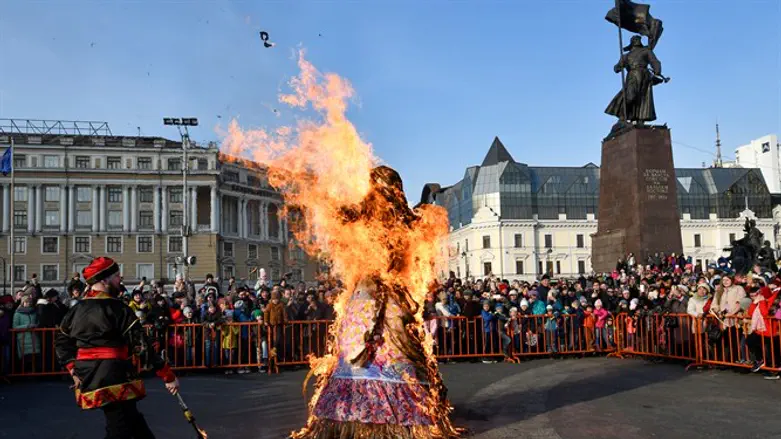
The World Jewish Congress (WJC) has condemned a Polish town after reports that residents hung and burnt an effigy "made to look like a stereotypical Jew" in a revival of an old Easter tradition.
WJC chief executive Robert Singer expressed "disgust and outrage at this latest blatantly anti-Semitic manifestation," according to a statement Sunday.
"Jews are deeply disturbed by this ghastly revival of medieval anti-Semitism that led to unimaginable violence and suffering," he added.
Polish media reports showed photos and video footage of residents, including children, of the southeastern town of Pruchnik using sticks to beat an effigy of Judas on Good Friday.
The figure, which had sidelocks and a large nose, was then beheaded, set on fire and tossed into a river, according to the reports.
The Easter ritual known as "Judgment over Judas" dates back to the 18th century and continued to be regularly performed until the Second World War.
The tradition had been largely abandoned, with only a couple of villages continuing it. Even Pruchnik had appeared to stop in recent years, according to the Polish news portal oko.press.
Anti-Semitic concerns regarding Poland have recently resurfaced.
In February, Israeli Foreign Minister Israel Katz (Likud) drew Poland's ire by saying "Poles suckle anti-Semitism with their mothers' milk."
Jews first arrived in Poland in the Middle Ages and for centuries the country was home to the world's largest Jewish community.
However, the population was decimated during the Nazi German occupation, when six million Poles -- half of them Jews -- were killed.
Today, there are only around 8,000 to 12,000 Jews living in Poland, according to estimates.